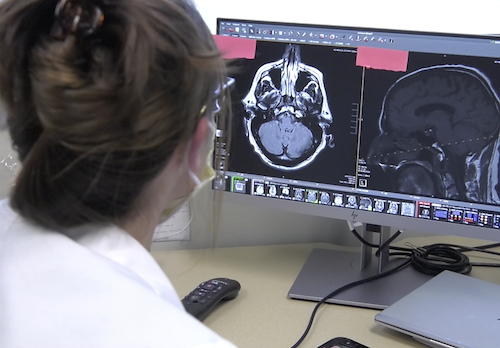
June 10, 2022 – Researchers from Intermountain Healthcare and the University of Utah are taking part in a new international study to help determine whether high-intensity exercise can slow the progression of Parkinson’s disease.
Parkinson’s disease is the second most prevalent neurodegenerative disease behind Alzheimer’s. More than one-million people have Parkinson’s disease in the United States and approximately 60,000 Americans are newly diagnosed each year.
Parkinson’s disease is a progressive nervous system disorder that affects movement. Symptoms start gradually, sometimes starting with a barely noticeable tremor in just one hand. Tremors are common, but the disorder also commonly causes stiffness or slowing of movement, which often worsen as the condition progresses over time.
Medications help alleviate the symptoms of Parkinson’s disease, but doctors have yet to find a way to stop it from getting worse. Exercise has shown promise, and doctors are hoping this North American study will provide the data to show it works.
“Endurance exercise programs are an important part of our patients’ treatment for Parkinson’s disease,” said Kathleen McKee, MD, neurologist and study lead at Intermountain Healthcare. “If we can prove certain forms of exercise slow down disease progression, it would be a major breakthrough in treating our patients.”
Researchers are looking for patients who are 40 to 80 years old and in the very early stages of Parkinson’s disease. They will be randomly selected to do moderate or high-intensity treadmill workouts over the course of 18 months.
This is the first time a study of moderate and high-intensity workouts is being studied across a large number of clinical sites in the United States and Canada.
Researchers will study the impact these types of exercise have on the brain – and look for reduced inflammation in the body which is known to be higher in patients with Parkinson’s disease.
“This study is the largest study to date of a non-pharmacologic intervention in Parkinson’s disease,” said Lee Dibble, PhD, professor of physical therapy and athletic training at the University of Utah and overall principal investigator of the Utah based sites. “We are excited to work to improve patients’ quality of life while investigating if aerobic exercise slows the rate of Parkinson’s disease progression, something no drug has been shown to do, thus far.”
